Posted on: June 24, 2024, 08:04h.
Last updated on: June 24, 2024, 09:29h.
On June 16, the Las Vegas Metropolitan Police Department tweeted that one of its volunteer search and rescue organizations found “a mysterious monolith” in the desert 16 miles north of downtown.
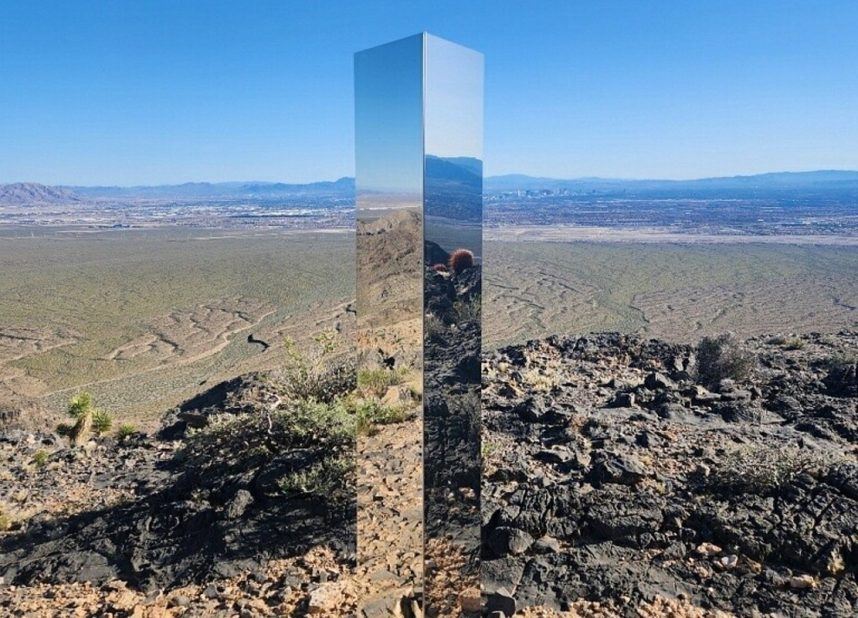
Posts about the reflective triangular column, which stood 10 feet tall, elicited some fairly predictable comments.
“Aliens,” wrote Facebook user Ted Milano. “It marks a portal location to another dimension.”
“Definitely a portal,” Letty Encinas agreed. “I recorded weird objects in the sky … at dusk … I have videos.”
“Alien or other planetary beings navigation device,” added Clint Gammell.
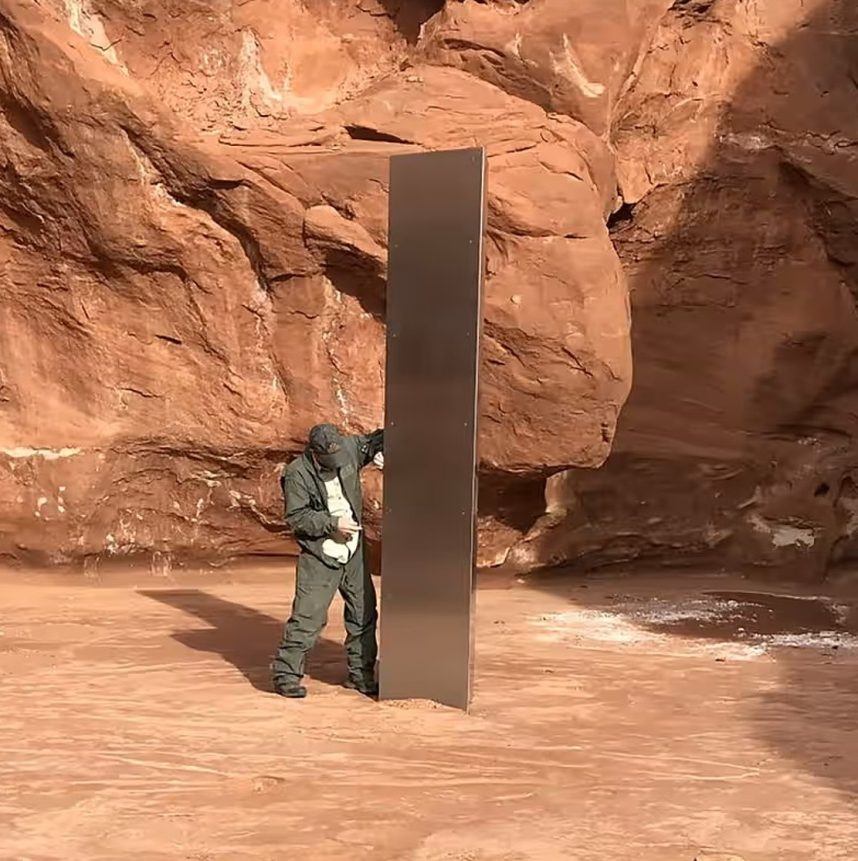
Where to Even Start?
The first misconception about the new monolith — which police removed four days after they were alerted about it, citing “public safety and environmental concerns” — is that it was new.
According to Monolith Tracker. an online community established to map the appearances of unexplained slabs, it was first spotted just before Christmas 2020 — a fact confirmed by this YouTube video.
That places it squarely in the period that future archeologists might rightly refer to as Peak Monolith Frenzy.
The very first “mysterious monolith” report came from a Utah wildlife agency team conducting a helicopter survey of bighorn sheep in the desert near Moab. They discovered it on Nov. 18, 2020, though images from Google Earth show it was installed sometime between July and October 2016.
A week later, a second pillar appeared in the Romanian city of Piatra Nemat. A week after that, one occupied the top of Pine Mountain in Atascadero, Calif.
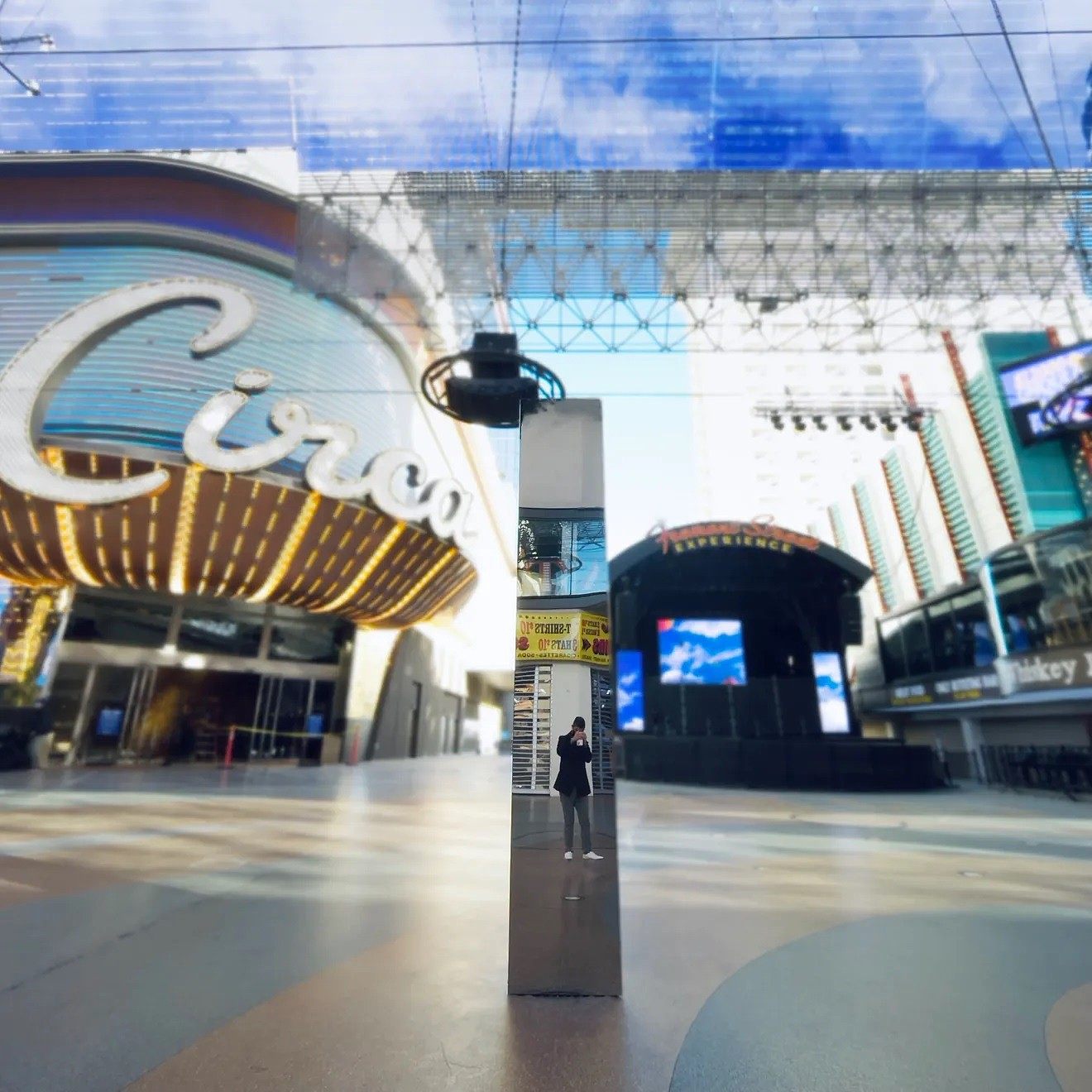
Then a fourth turned up smack in the middle of the Fremont Street Experience in downtown Las Vegas. For several reasons, this remains the most suspect of all the as-yet-unsolved monolith “mysteries,” which are all completely suspect to begin with:
1. It was the first, and still one of only a handful, to appear in an urban setting. (Another famously appeared outside Grandpa Joe’s Candy Shop in Pittsburgh. And even though shop owner Chris Beers fessed up immediately to fabricating that one himself, the story still went viral and made the shop world-famous for a minute and a half.)
2. The photo run by news outlets of this monolith was snapped and distributed by the Fremont Street Experience’s PR team.
3. It resembled a mirror column from Old Navy.
Since 2020, 244 metallic or mirrored slabs have been found around the globe, according to Monolith Tracker, all apparently without anyone noticing who put them there.
Though the pace eventually slowed, and the public eventually lost interest, the monoliths never stopped appearing — or, as in the case of the latest one, being discovered.
This March, one was found by construction worker Craig Muir while out for his regular hike in Powys, Wales.
Muir posted a TikTok video documenting his discovery, which he claimed had never been there before. He noted that it stood atop a 2,000-foot bluff with no roads, tire tracks, or footprints surrounding it that could possibly explain any human connection.
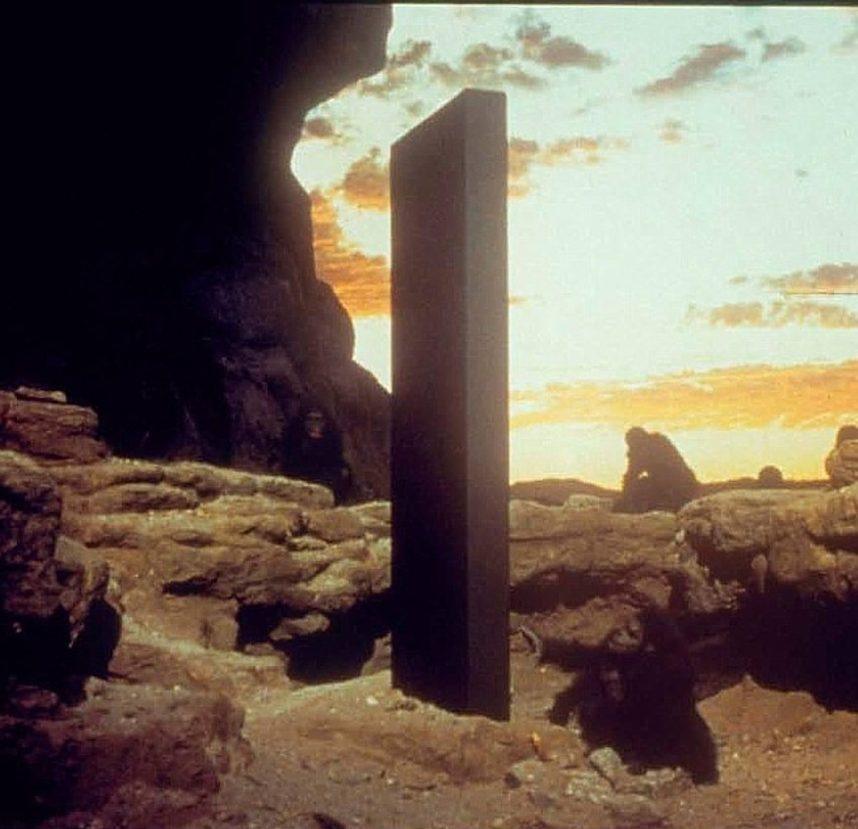
A Space Fraud-essy
As it appeared in the beginning of Stanley Kubrick’s 1968 film “2001: A Space Odyssey” — and the 1968 Arthur C. Clarke novel on which it was based — “the monolith” was a teaching device designed by an extremely advanced extraterrestrial civilization.
Its purpose was to guide nascent humankind through the development of tools, weaponry, and the other evolutionary steps leading eventually to space flight.
By the way, monoliths by definition are made of stone, as the movie monolith appeared to be — though prop designers used much-lighter Plexiglas to simulate it.
Being metallic — as all of them found since 2020 have been — makes them technically not monoliths at all. (Just saying.)
Bitter Pillar
In December 2020, a since-deleted video was posted to YouTube by a group of four Moab slackliners claiming responsibility for removing the Utah monolith. It showed them dismantling it to see what it was made of. (The team eventually turned it over to the federal Bureau of Land Management, which still reportedly possesses it.)

It turns out, its materials were disappointingly Earth-based. In fact, all the monoliths examined so far were constructed of common metals, wood and/or polymethyl methacrylate. That’s the acrylic, branded as Perspex, used to manufacture shatter-proof mirrors.
A majority of scientists do think that intelligent life exists elsewhere in the universe.
And some unexplained something has certainly been effing with the US Navy, which officially released footage of their encounters with seemingly faster-than-possible craft in 2004, 2014, 2015, and 2019.
But whatever the objects in those Navy videos were, it is beyond unlikely that they were constructed by unthinkably advanced beings who also happen to reconstruct icons from classic 1960s science fiction, incorrectly, out of materials for sale at Walmart.
Ringside Deceit
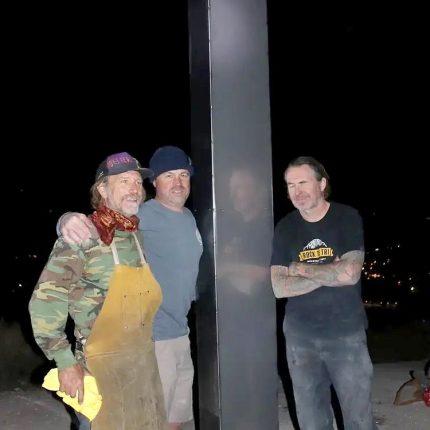
The monolith in Atascadero, Calif. ended up being built by Wade McKenzie and Travis Kenney, local metal artists.
They told the New York Times that they were inspired to create their 400 lb. structure — consisting of a steel frame coated in a stainless steel skin — by reading about the first two.
And when you think about it — using the analytical part of your brain, that is, not the part that avoids walking near black cats and under ladders — human artists had to have created every monolith.
They have the materials, the talent, and by far the greatest motive.
Artists sacrifice a lifetime of creature comforts — and, frequently, their own mental and physical well-being — to pursue their dream.
Of the very few artists who will ever achieve worldwide fame, most won’t until after their death renders their life’s work a limited collection.
Just because that last sentence was harsh to read, doesn’t mean it’s untrue. And not recognizing and honoring this harsh truth dishonors what Vincent Van Gogh, Claude Monet, and Paul Cézanne were all forced to endure on this side of the great divide.
During Peak Monolith Frenzy, however, almost any plank propped up in a remote locale could have gotten an unknown artist’s work seen by millions via the news.
Hell, it got Wade and Travis in the New York Times!
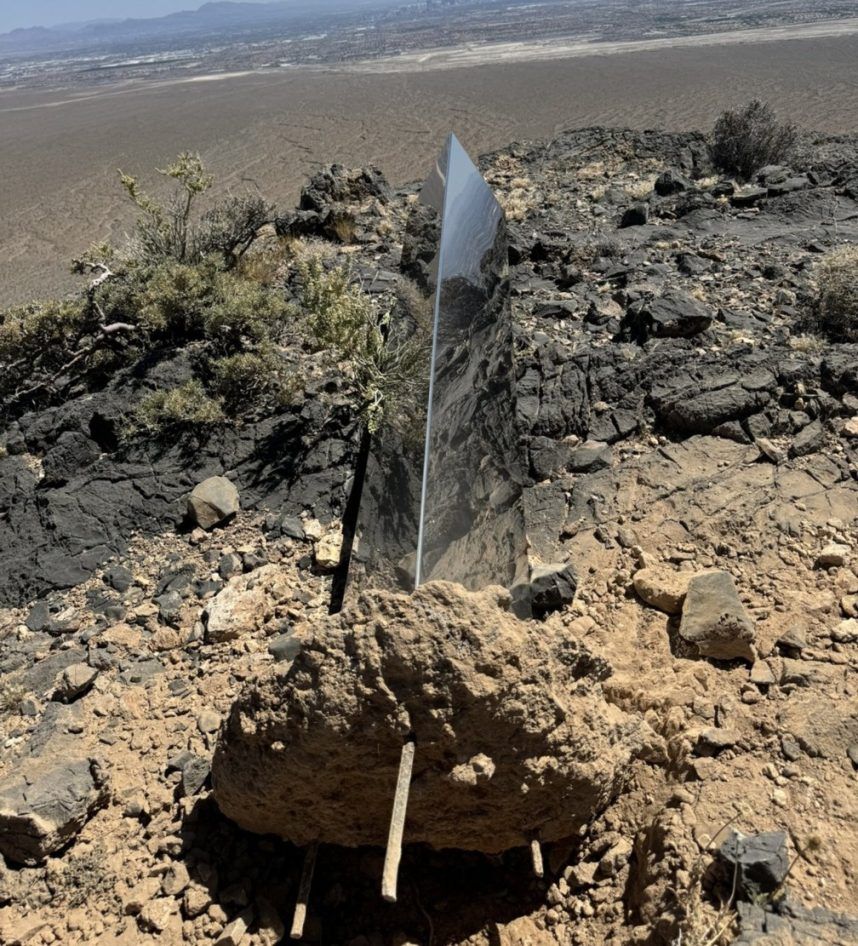
Lowering Our Bar
This is the 100th Vegas myth we’ve examined for this exclusive Casino.org series.
For each of the previous 99, we presented ironclad proof before declaring it busted. But for this one, since it’s impossible to demonstrate that every single metal column of unknown origin isn’t the work of space aliens, we must shift the burden of proof to the true believers.
It’s on them to prove that extraterrestrials built even one of these not-even-monoliths. It’s not on science to prove that their theory doesn’t apply to every shiny object in the desert.
To quote the aphorism coined by science communicator Carl Sagan in his 1979 book, “Boca’s Brain,” “extraordinary claims require extraordinary evidence.”
Actually, that’s also a myth. That sentence first appeared in a 1975 “Parapsychology Review” article by skeptic Marcello Truzzi as “extraordinary claims require extraordinary proof.”
Look for “Vegas Myths Busted” every Monday at Casino.org. Visit VegasMythsBusted.com to read previously busted Vegas myths. Got a suggestion for a Vegas myth that needs busting? Email corey@casino.org.




